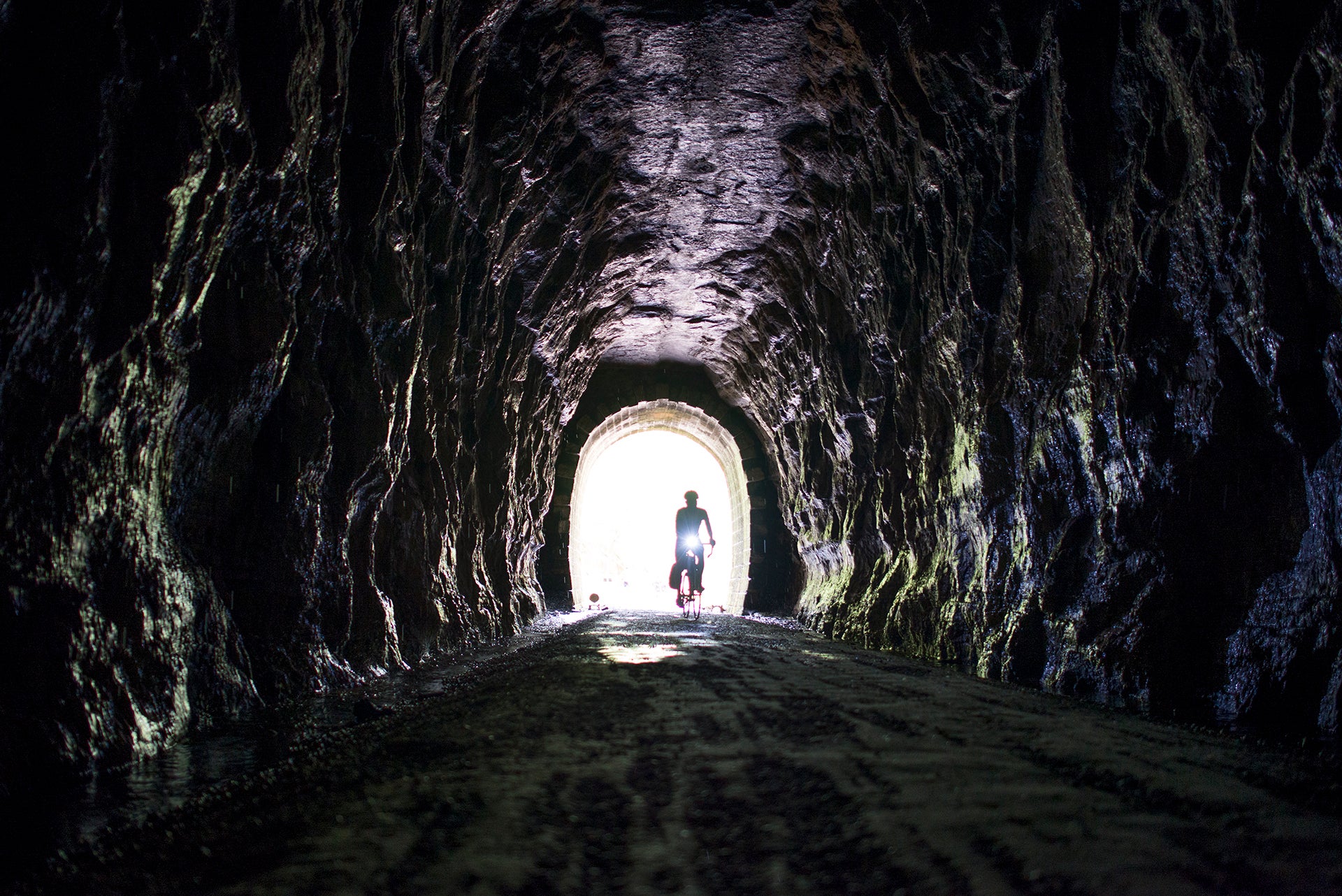Every year, Indigenous people in Wisconsin face several incidents of harassment during spearfishing season, reports the Green Bay Press-Gazette.
Earlier this week, state officials are warning against this harassment, specifically in northern Wisconsin where spearfishing season has recently begun.
“The (Department of Natural Resources) has zero tolerance for harassment of tribal members who are exercising their treaty rights,” said DNR secretary Preston D. Cole in a statement. “We fully support Ojibwe sovereignty and treaty rights.”
News with a little more humanity
WPR’s “Wisconsin Today” newsletter keeps you connected to the state you love without feeling overwhelmed. No paywall. No agenda. No corporate filter.
Officials are also encouraging tribal members to remember the four Cs when experiencing harassment: create distance, confirm your location, call 911 and check in with the Great Lakes Indian Fish & Wildlife Commission.
Past examples of harassment include threats of gun violence, hate speech and other forms of violence.
The Ojibwe tribe has guaranteed rights to hunt and fish off-reservation in the Ceded Territory through mid-19th century treaties in exchange for the government taking Ojibwe land.
“The spring treaty fishing season is among the most highly regulated, highly enforced harvest activities in the region,” said Adam McGeshick, conservation officer at Great Lakes Indian Fish & Wildlife Commission, in a statement. “Overall, GLIFWC’s Conservation Law Enforcement Division maintains excellent working relationships with law enforcement agencies throughout the Ceded Territories. Together, we hope to help create an atmosphere where tribal members can fish, hunt, and gather without worry or apprehension.”
Wisconsin DHS: COVID-19 Weekly Recap
The seven-day average for new COVID-19 cases in Wisconsin is 568 as of Friday. The Wisconsin Department of Health Services has confirmed 12,823 total deaths from the disease.
60.8 percent of Wisconsinites are fully vaccinated — 82.3 percent of people age 65 and older, 57.7 percent of children age 12 to 17 and 24.3 percent of children 5 to 11 years old. As of Friday, 33.6 percent have received a booster shot.
Lakefront Brewery to upgrade its Riverwalk beer garden for 2023
Lakefront Brewery’s Riverwalk might look a little different next summer, with plans for improvement underway.
Lakefront Brewery President Russ Klisch said people can expect an outdoor overlook at the dining room level, opening up the stairs to the lower Riverwalk, permanent bathrooms for beer garden guests, more outdoor coverings and a more functional outdoor bar, the Milwaukee Journal Sentinel reported.
“One thing last year was I could tell how much people like the area that we created outside,” Klisch said. “It’s very popular, and we’re looking to upgrade it.”
The 35-year-old Lakefront Brewery is among Milwaukee’s oldest craft breweries.
And as COVID-19 mitigation efforts ease, Klisch said it was time to make upgrades to expand safer, outdoor options while cases linger in Wisconsin.
[[{“fid”:”1678701″,”view_mode”:”full_width”,”fields”:{“format”:”full_width”,”alignment”:””,”field_image_caption[und][0][value]”:”%3Cp%3E%3Cem%3E%3Ca%20data-track%3D%22attributionNameClick%22%20href%3D%22https%3A%2F%2Fflickr.com%2Fphotos%2F98623843%40N05%2F%22%20id%3D%22yui_3_16_0_1_1647010780518_2039%22%20title%3D%22Go%20to%20Joe%20Passe’s%20photostream%22%3EJoe%20Passe%3C%2Fa%3E%26nbsp%3B(CC%20BY-SA%202.0)%3C%2Fem%3E%3C%2Fp%3E%0A”,”field_image_caption[und][0][format]”:”full_html”,”field_file_image_alt_text[und][0][value]”:”Lakefront Brewing”,”field_file_image_title_text[und][0][value]”:”Lakefront Brewing”},”type”:”media”,”field_deltas”:{“1”:{“format”:”full_width”,”alignment”:””,”field_image_caption[und][0][value]”:”%3Cp%3E%3Cem%3E%3Ca%20data-track%3D%22attributionNameClick%22%20href%3D%22https%3A%2F%2Fflickr.com%2Fphotos%2F98623843%40N05%2F%22%20id%3D%22yui_3_16_0_1_1647010780518_2039%22%20title%3D%22Go%20to%20Joe%20Passe’s%20photostream%22%3EJoe%20Passe%3C%2Fa%3E%26nbsp%3B(CC%20BY-SA%202.0)%3C%2Fem%3E%3C%2Fp%3E%0A”,”field_image_caption[und][0][format]”:”full_html”,”field_file_image_alt_text[und][0][value]”:”Lakefront Brewing”,”field_file_image_title_text[und][0][value]”:”Lakefront Brewing”}},”link_text”:false,”attributes”:{“alt”:”Lakefront Brewing”,”title”:”Lakefront Brewing”,”class”:”media-element file-full-width”,”data-delta”:”1″}}]]
Guidelines for pregnant people with high blood pressure could change, helped by UW researcher’s study
Women who have chronic, mild high blood pressure while pregnant and receive treatment are better off for it and so are their babies, according to a large study that compared birth outcomes among 2,400 women across the U.S.
The Milwaukee Journal Sentinel reported that women who received treatment for high blood pressure dealt with fewer complications such as severe preeclampsia, preterm birth and death of the fetus. Not all women with high blood pressure during pregnancy are treated for it, and there was concern historically that women who were treated for it had smaller babies. That’s now been debunked by the study that was published Saturday in the New England Journal of Medicine.
“This might be an opportunity to reduce hypertension-related complications for the mom and the baby,” said Kara Hoppe, an associate professor of obstetrics and gynecology at UW and one of the co-authors of the study.
Current guidelines set by the American College of Obstetricians and Gynecologists. The Journal-Sentinel article said the study could prompt a change to those guidelines.
Bill! Bill! Bill! Bill!
Bill Nye the Science Guy will be speaking April 25 at the Kohl Center on the University of Wisconsin-Madison campus, reports the Cap Times.
The talk is part of the Wisconsin Union Directorate’s Distinguished Lecture Series; Nye’s lecture is titled, “Let’s Talk Climate Change.” It will also be available virtually.
Nye is most popular for his show “Bill Nye the Science Guy” that ran from 1992-98 — many of those episodes have been shown in grade school science classes. From 2017-18, he hosted the Netflix spin off “Bill Nye Saves the World.” He’s now the CEO of Planetary Society, a nonprofit that advocates for space science research and exploration.
UW-Madison students can register for tickets to Nye’s lecture starting April 11 and others can register on April 13.
Finding solace, connection and healing in your neighborhood. Milwaukee program looks to expand Healing Spaces Initiative.
Milwaukee communities are being encouraged to take advantage of a city program geared toward creating peaceful spaces out of vacant city-owned lots.
The Healing Spaces Initiative takes the lots and turns them into public green spaces with art, benches, fountains, flowers, herb gardens, Little Free Libraries and more.
The program began last year as a pilot. Using a $70,000 grant, eight lots in the Harambee neighborhood were transformed into green, calming spaces, according to the Milwaukee Journal Sentinel.
This year, the Department of City Development is bringing the program to other neighborhoods with $50,000.
“We want residents to find some place in their own neighborhood to find solace,” Kacee Ochalek, Neighborhood Improvement Development Corp. community outreach coordinator, said last week.
The city owns around 2,900 vacant lots, according to the Journal Sentinel. People who want to apply for the funds should think about what a neighborhood needs and also make sure the space is accessible to people with disabilities.
“You’re really creating an opportunity for people to feel just a little bit more connected to their environment … and a little more centered,” Development Commissioner Lafayette Crump said.
First Black woman, Judge Ketanji Brown Jackson, confirmed to US Supreme Court
History was made this week.
The U.S. Senate confirmed Judge Ketanji Brown Jackson to serve on the U.S. Supreme Court on Thursday — the first Black woman to serve on the nation’s highest court.
Jackson will be the 116th Supreme Court justice.
She starts in early summer when Justice Stephen Breyer retires. When Jackson is sworn in, the nine-person Supreme Court will have four women for the first time.
The Senate voted 53-47, with all Democrats and three Republicans voting for her nomination, according to NPR. The three Republicans were: Sens. Mitt Romney, of Utah; Susan Collins, of Maine; and Lisa Murkowski, of Alaska.
Jackson served eight years as a federal trial court judge. She was confirmed last June to the U.S. Court of Appeals for the District of Columbia. Before becoming a judge, Jackson was a public defender. She graduated from Harvard Law School in 1996.
The day after the vote, Jackson appeared with President Joe Biden and Vice President Kamala Harris at the White House. In a speech, she thanked historical figures for paving the way for her, and she thanked her colleagues, friends and family for their support.
“I am standing on the shoulders of my own role models, generations of Americans who never had anything close to this kind of opportunity, but who got up every day and went to work believing in the promise of America,” she said.
“It has taken 232 years and 115 prior appointments for a Black woman to be selected to serve on the Supreme Court of the United States,” she said. “But we’ve made it. We’ve made it. All of us. All of us.”
Biden made a campaign promise to name a Black woman to the country’s highest court.
“We’re going to look back and see this as a real moment of change” Biden said Friday as he celebrated Jackson’s confirmation.
Editor’s note: The Associated Press contributed to this report.
Wisconsin Public Radio, © Copyright 2025, Board of Regents of the University of Wisconsin System and Wisconsin Educational Communications Board.




